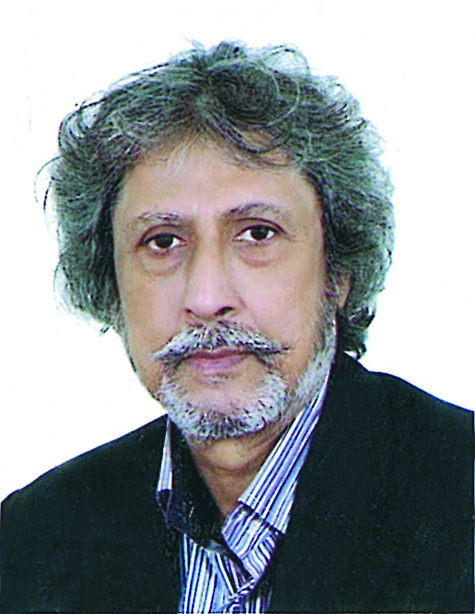From “bottomless” to middle income country

When we look at the size of the budget of this fiscal (Tk. 523, 190 crore) we cannot help but appreciate the progress Bangladesh made during the tenure of the government of Prime Minister Sheikh Hasina. Every year it is increasing to enable implementation of many of the mega projects undertaken by the government. The bold plan was taken against the backdrop of a growing economy with exports and manpower fetching billion of dollars. These achievements made it possible for Bangladesh to be on its way to becoming a middle-income country in a couple of years.
Let us take a look at the budget during the tenure of Bangabandhu Sheikh Mujibur Rahman. Despite being a war ravaged country, the budget size shows a healthy upward trend from 1972 to 1975. By 1975, only in three years time, the size had almost doubled. This is a laudable feat no doubt, considering the adversities at home and abroad Bangladesh had to face during those early years.
Today, under the leadership of his worthy daughter, Sheikh Hasina, a budget of over five lakh crore has been placed for approval. Had the Awami League
engaged in rampant looting of state wealth, like those previous governments from 1975 till 1990, surely Bangladesh would not have dared to propose such an ambitious budget.
This magnificent achievement makes us proud and at the same time reminds us of the villainous utterance like “Bottomless Basket Case” by Henry Kissinger way back in early seventies. Kissinger also said "We have nothing in this...", meaning no gain for the US, politically, economically or strategically. Only some weeks back, the Bangladesh Works Minister said the "Bottomless basket” today contains US $ 2730 crore. He referred to our foreign currency reserve at present.
History books write more on Kissinger: “Under Kissinger's guidance, the United States government supported Pakistan in the Bangladesh Liberation War in 1971. Kissinger was particularly concerned about the expansion of Soviet influence in the Indian Subcontinent as a result of a treaty of friendship recently signed by India and the USSR, and sought to demonstrate to the People's Republic of China (Pakistan's ally and an enemy of both India and the USSR) the value of a tacit alliance with the United States.
Every year the budget is increasing
to enable implementation of many
of the mega projects undertaken
by the government
Kissinger sneered at people who "bleed" for "the dying Bengalis" and ignored the first telegram from the United States consul general in East Pakistan, Archer K. Blood, and 20 members of his staff, which informed the US that their allies West Pakistan were undertaking, in Blood's words, "a selective genocide". In the second, more famous, Blood Telegram the word genocide was again used to describe the events, and further that with its continuing support for West Pakistan the US government had "evidenced [...] moral bankruptcy".
As a direct response to the dissent against US policy Kissinger and Nixon ended Archer Blood's tenure as United States consul general in East Pakistan and put him to work in the State Department's Personnel Office.
Henry Kissinger had also come under fire for private comments he made to Nixon during the Bangladesh–Pakistan War in which he described Indian Prime Minister Indira Gandhi as a "bitch" and a "witch". He also said "The Indians are bastards", shortly before the war. Kissinger has since expressed his regret over the comments.
Thank God, Kissinger lives to see the progress of Bangladesh.
Bangladeshis did not crave for luxury but wanted to live with dignity. Kissinger dared to deny us that dignity. He measured everything in terms of money, dollar rather, and made sure what he would get in return before extending a helping hand. He had failed to stop the birth of Bangladesh, therefore it is no wonder that his scathing bottomless basket comment was laced with slur and hatred. We must recall that during the 9-month long liberation war the occupying Pakistani forces and their lackeys had plundered our resources and as a result the new government found it difficult to engage in trade right away to earn foreign currency to purchase essential commodities from the international markets. The stock of food grains and other essentials started to deplete soon in feeding 7.5 crore people. Some aide money started to trickle in and civil administration had to work overtime to decide the priorities.
To be hit by a comment like that by a distant American who refused to help us in 1971 was too shocking an experience for the government and the people in general.
This writer wonders what Kissinger would have to say if he is asked to comment on Bangladesh. He should be shown the statistics of progress Bangladesh made since 1972. His facial expression would be worth watching.
Shahnoor Wahid is Advisory Editor of Bangladesh Post.



